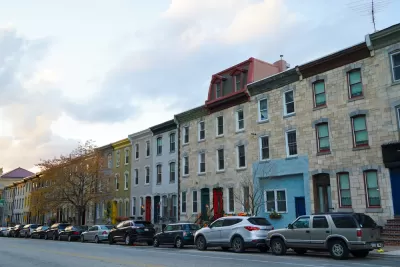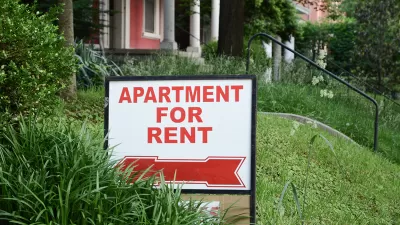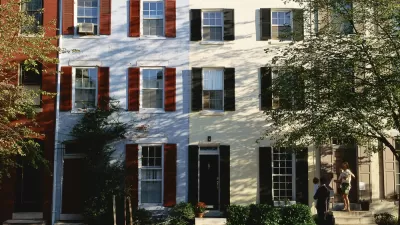A program that provides mediation between landlords and tenants has helped a majority of applicants avoid eviction, signaling a promising avenue for renter assistance as landlords seek to recoup COVID-era losses.

A podcast from Next City describes the success of a 'eviction diversion program' in Philadelphia that could provide a long-term solution after pandemic assistance programs end. So far, the program has reduced eviction filings by 75 percent. "In this episode of the podcast, Next City executive director Lucas Grindley talks with housing correspondent Roshan Abraham about the connection between poverty and eviction. We also meet Rasheedah Phillips, who was an attorney with Community Legal Services when she helped launch the program in 2020."
According to the city's website, the program, which was created as a response to COVID-19 and became mandatory as of January 2022, "enables landlords and tenants to arrive at an agreement that works for both parties, without having to go to Court."
The program sets out a process that must be followed by tenants and landlords and arranges mediation sessions. "Every tenant in the Eviction Diversion Program is assigned a City-funded housing counselor. Housing counselors meet with tenants before mediation to complete rental assistance applications, assess finances and find out if other issues need to be addressed. Housing counselors attend mediation sessions along with the tenant. Landlords are encouraged to communicate with housing counselors."
Listen to the full podcast at the source link.
FULL STORY: Can Landlords Compromise? This Anti-Eviction Program Says Yes

Manufactured Crisis: Losing the Nation’s Largest Source of Unsubsidized Affordable Housing
Manufactured housing communities have long been an affordable housing option for millions of people living in the U.S., but that affordability is disappearing rapidly. How did we get here?

Americans May Be Stuck — But Why?
Americans are moving a lot less than they once did, and that is a problem. While Yoni Applebaum, in his highly-publicized article Stuck, gets the reasons badly wrong, it's still important to ask: why are we moving so much less than before?

Using Old Oil and Gas Wells for Green Energy Storage
Penn State researchers have found that repurposing abandoned oil and gas wells for geothermal-assisted compressed-air energy storage can boost efficiency, reduce environmental risks, and support clean energy and job transitions.

Poorest NYC Neighborhoods Pay Price for Delivery Boom
The rise of ‘last-mile’ e-commerce warehouses — and their attendant truck traffic and air pollution — is disproportionately impacting the most historically disadvantaged parts of the city.

Greening Oakland’s School Grounds
With help from community partners like the Trust for Public Land, Oakland Unified School District is turning barren, asphalt-covered schoolyards into vibrant, green spaces that support outdoor learning, play, and student well-being.

California Governor Suspends CEQA Reviews for Utilities in Fire Areas
Utility restoration efforts in areas affected by the January wildfires in Los Angeles will be exempt from environmental regulations to speed up the rebuilding of essential infrastructure.
Urban Design for Planners 1: Software Tools
This six-course series explores essential urban design concepts using open source software and equips planners with the tools they need to participate fully in the urban design process.
Planning for Universal Design
Learn the tools for implementing Universal Design in planning regulations.
Heyer Gruel & Associates PA
City of Moreno Valley
Institute for Housing and Urban Development Studies (IHS)
City of Grandview
Harvard GSD Executive Education
Salt Lake City
NYU Wagner Graduate School of Public Service
City of Cambridge, Maryland





























